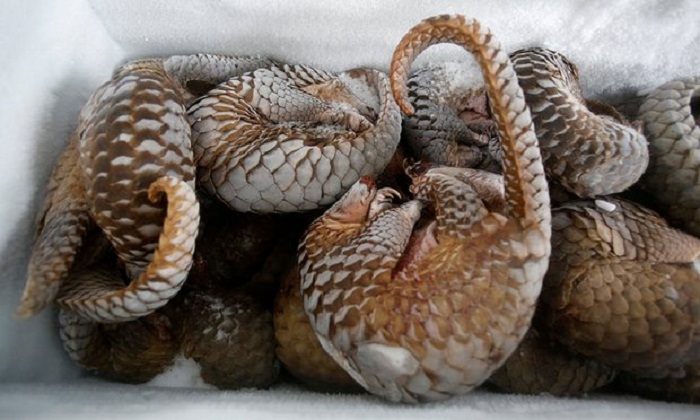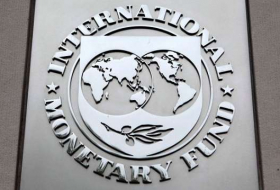Sadly for the pangolin, the tough brown scales that so neatly tile its body are in huge demand for medicinal purposes, while the flesh that they protect is also appreciated as a delicacy in Vietnam and some parts of China. Earlier this month, conservationists warned of the devastating decline in pangolin populations. Cites followed up by putting all pangolin species into the highest category of protection.
Grey parrot
Cheers and applause greeted the decision to finally ban the international trade in wild African grey parrot. This beautiful and highly intelligent creature – one study found that they are capable of the same logical reasoning as a four-year old human – has been heavily hunted in the central and western African countries where they are native. The birds are hugely popular around the world as pets, but their numbers in the wild have dwindled, with Ghana estimated to have lost 90-99% of its wild population. The conference voted to move the parrot into Appendix I – the highest level of protection.
Rosewood
With its distinctive dark auburn sheen, rosewood is loved by consumers who snap up luxury rosewood furniture in China. But the explosion in demand – the market has grown 65 times since 2005 and is now worth $2.2bn a year – is having a devastating impact on the forests in South-East Asia where the rosewood tree grows, and traffickers are now looking for sources in Africa and Central America. By a consensus decision, the Cites conference placed all 300 types of rosewood under trade restrictions.
Rhinos
A proposal from Swaziland that would have allowed it to sell its 330kg stockpile of horn in order, it said, to use the money to help support rhino conservation work, was defeated. As a recent Guardian investigation revealed, international criminal networks are making millions by smuggling rhino horn out of Kenya and South Africa into Asia where it is used for so-called medicinal purposes. There is a misplaced belief that rhino horn can increase fertility.
Lions
One of the few disappointments for conservationists at the conference came with the defeat of a motion to increase protective measures for African lions. Lion parts from captive-bred lions are traded around the world, and observers cite what appears to be a growing market in lion bones for medicinal purposes in Asia. But a motion to ban all trade in lion parts was defeated. Trade in wild lion parts will continue to be prohibited, but the hoped for ban on trade in captive lion parts did not materialise. Humane Society International who campaigns with Blood Lions against captive breeding of lions, called the decision a “bitter disappointment”.
Sharks and rays
Small furry shark mascots were all over the place at the Cites conference, and the decision to place nine species of ray, three thresher shark species and the silky shark under international trade restrictions was met with whoops and hugs.
Ivory markets and elephants
Elephants were one of the hottest topics at the conference, following heated discussions at the IUCN wildlife summit in September around plans to end the domestic trade in ivory.
Some Southern African countries, which claim to have elephant populations that are stable or recovering, are asking to be allowed to resume a legal trade in ivory so that the revenue can be used to help with conservation efforts. They argue that only by allowing wildlife to contribute to national revenues can they run truly sustainable conservation policies. But conservationists argue that only a total ban will enable a proper crack-down on the massive illegal trade that is critically endangering the world’s elephant population.
In the end neither side succeeded in having their proposals for change passed. In fact, the most significant gain for elephants was a resolution passed unanimously calling for the closure of all domestic ivory markets “that contribute to illegal trade and poaching”.
With the conference also making progress on National Ivory Action Plans, and an announcement due from China later this year about its plans to close its own domestic market, conservationists hope that a tipping point in the battle to shut down the international ivory trade may be on the horizon. The Wildlife Conservation Society described the package of measures agreed at Cites as “a huge win for elephants”.
More about:
















































